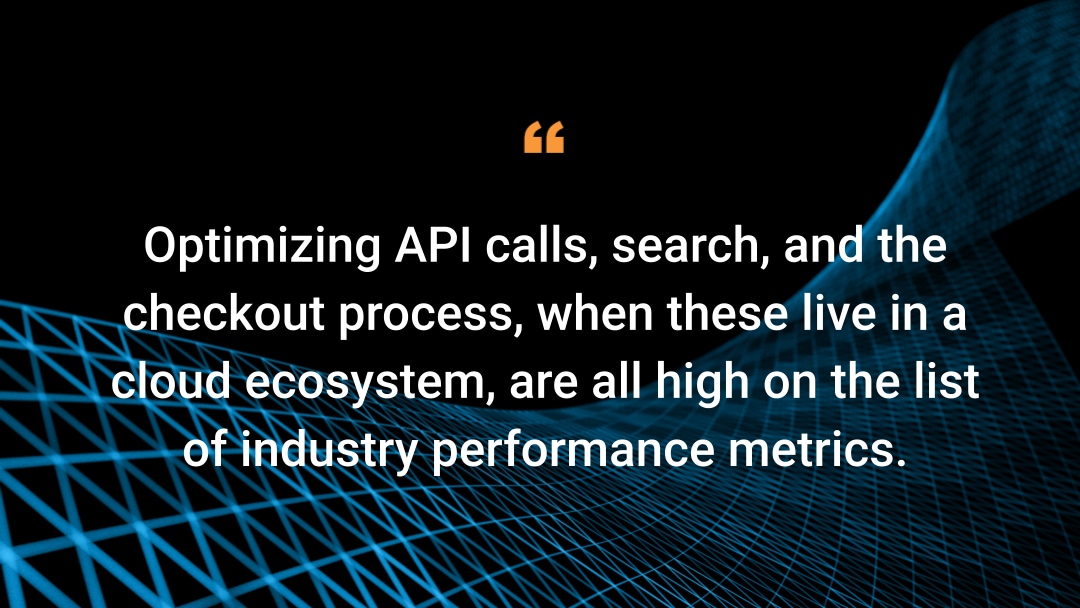Increase Performance, Decrease Costs with a Flexible Distributed Cloud

Where would the commerce industry be without cloud computing? In all likelihood, it would still be a brick-and-mortar industry.
The advent of cloud computing and multicloud strategy enabled a revolution in online shopping. Today, however, the complexity inherent in multicloud is a primary pain point for that same industry.
Commerce IT leaders need to boost performance and rein in cloud costs. Thanks to The Great Cloud Reset — a 2023 study from Forrester Consulting, commissioned by Akamai — we can see that they’re meeting those needs by choosing a distributed cloud architecture.
The bottom line is a top concern
Industry IT leaders expect that distributed cloud computing will help with cost savings across the board. We see this reflected in the commerce spotlight within the study: 78% of industry respondents say that avoiding or minimizing egress costs is a key characteristic of a distributed cloud partner.
Strategic alignment of the right workload with the right cloud is another feature of a distributed architecture that 65% of industry respondents say will help optimize cloud spending. In addition, 63% also say that choosing the appropriate workload for the cloud will increase revenue.
Performance from cloud to edge
Industry IT leaders also cite the need to improve performance across their networks, from core to edge. In the study, 92% of commerce respondents say having a flexible cloud architecture that includes the edge was “important” or “critical” to improving performance and, as such, giving users a better experience.
Optimizing industry performance metrics
Commerce companies understand that milliseconds matter and can result in millions of dollars won or lost over the course of a year. Optimizing API calls, search, and the checkout process, when these live in a cloud ecosystem, are all high on the list of industry performance metrics.
A distributed cloud, along with services like distributed databases, can help address these challenges when scaling to meet the demands from a growing customer base and increasingly complex applications.
A distributed cloud allows innovation
Because a distributed cloud brings data, computing, and storage closer to customers to support the real-time analysis required to make commerce applications future-ready, businesses can leverage a distributed cloud to reduce resource costs while offering innovations ahead of the competition.
Those innovations can include personalized search results, tailored product recommendations, social shares and testimonials, real-time inventory management, waiting rooms, dynamic pricing capabilities, and more.
Distribution targets key pain points
Industry IT leaders say a distributed cloud will help them address the complexity of a multicloud strategy — a catch-all term that includes the difficulty of integration, scaling, maintenance, and so on.
More than half (53%) of the respondents cited complexity as a major concern, and 49% said that controlling the costs associated with sprawl, data egress charges, and unpredictable pricing was a major challenge.
Additionally, 43% of commerce respondents said they need a cloud provider who can meet the data residency and sovereignty requirements that are becoming more prominent globally.
Matching the right workload to the right cloud
To help overcome those challenges, 80% of commerce industry respondents say it’s essential to choose the right cloud for each workload. By engaging with cloud providers who can meet their requirements for building and deploying workloads and applications closer to employees and users, they expect to see increased revenue and improved reliability.
Improved user experience
Distributing workloads across the cloud continuum also pays off in terms of performance. In a recent webinar about The Great Cloud Reset, our guest speaker, Forrester Principal Analyst Lee Sustar, explained that when you leverage what specific clouds do best, you optimize workload efficiency. That, in turn, improves user experience.
And when it comes to digital commerce, end-to-end user experience is absolutely critical. As Akamai CTO Andy Champagne said in the same webinar, “Application performance is the defining factor in where users want to go.”
Summary
For global companies, like many in commerce, it’s necessary to run workloads in multiple regions and countries worldwide. Distributing those workloads not only improves performance, but also satisfies the increasingly stringent regulations regarding data residency and sovereignty.
The Akamai-commissioned Forrester study shows that commerce professionals have an almost unanimous understanding that the move to a distributed cloud computing platform is the right solution for building and deploying cloud-native applications. This move helps drive competitive advantage, improve the customer experience, and boost the bottom line.
Learn more
For the full picture of commerce industry responses to the study, download a copy of the commerce spotlight from The Great Cloud Reset today.


